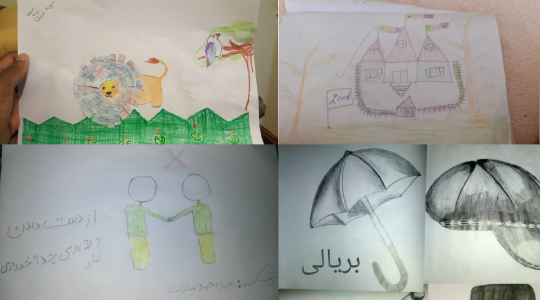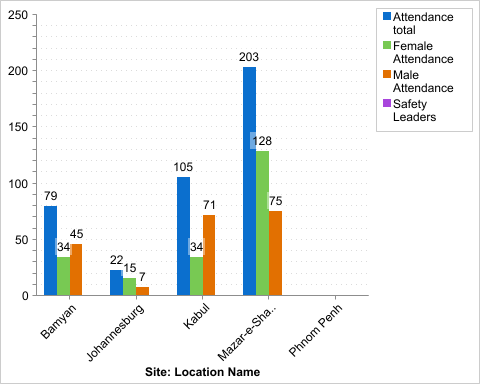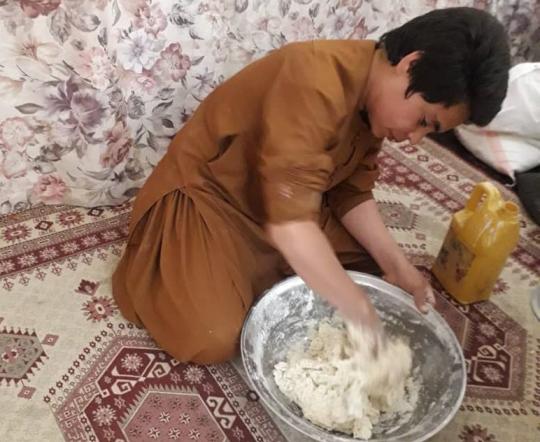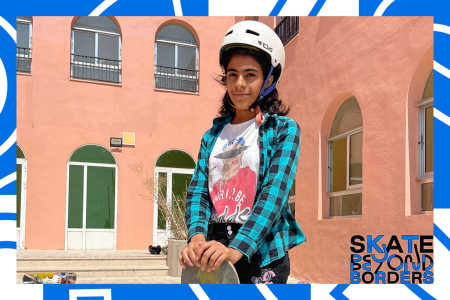Due to the coronavirus situation, all our regular programs are currently suspended. But we’re still working hard to connect with students and offer alternatives wherever we can. We caught up with Skateistan’s Monitoring, Evaluation and Learning Manager, Lauren Della Marta, to get an update on the numbers behind our response to the global pandemic.
Monitoring student attendance in our sports and education programs helps us work towards our goals, such as 50% girls’ participation. It also allows us to identify trends over time such as student absences and engagement with our various programs.
Our educators take attendance for each of their classes on a daily basis using Skateistan's custom-built app. They enter key information such as the date, student names and lesson activities and this information is then stored in our database. On the homepage of our website, you can see the total student attendance and learning hours for each day, and girls’ participation for the past week. These are just our highlight stats that we think our supporters will be most interested in - there’s a whole load of other data that we gather for our own processes of monitoring, evaluation and learning.
We put this data on the website so that everyone can see the difference we are making each and every day. This is also about transparency - we value trust and we want our supporters to trust us to give them the real picture. For example, in the first week that our students were in lockdown, our data read zero on the website because we hadn’t yet worked out our program of reaching them remotely.
Since all of our Skate Schools temporarily closed on March 16th, we have kept in touch with as many students and their families as possible and are regularly communicating through phone calls and Whatsapp groups instead. Recently, some of our students in Afghanistan and South Africa have been attending remote lessons, so attendance is being taken as usual in our virtual classes and you can see this data appearing in the graphs on the website homepage. As we increase our reach, these numbers will also go up.
Our teams have been delivering remote lessons through WhatsApp and phone calls wherever possible, and the feedback we are getting is that these activities are helping our students feel better about staying at home, keeping everyone safer. In Kabul, students learned about personal hygiene and good habits. The word has spread and we've had requests from siblings and extended family members to join Skateistan's remote program lessons! In Bamyan and Mazar-e-Sharif, students learned about anger management and the environment. These lessons helped students and their parents to work together and collaborate with each other in cleaning and other duties whilst at home. Our female youth leadership students in Mazar resumed their weekly meetings via WhatsApp, discussing how to be good role models, and about following regular school subjects which are being aired on national television. In Johannesburg, the team continued to teach a handful of high school students English and Math, and sent out a creative collage art activity. In Phnom Penh, the team has been connecting with neighborhood students by phone, and helping them with their homework. As some staff are able to be back in the office now, students who live in the area are starting to pick up art supplies and story books from the Skate School to read at home. These students are also dropping off their homework activities to be checked and to pick up new activities.
We are really proud of our educators for providing these lessons, as it's a huge technology challenge! But not all of our students are able to attend remote lessons, so we are also looking into more creative and offline ways to provide support as well as accompanying ways to record these interactions. This has included organizing the distribution of food parcels for families in Johannesburg as well as calling students one at a time to check in with them and give them ideas for fun activities, like gardening and baking. This is especially true in Afghanistan, where only around 10% of our students have internet access at home.
We also have to remember that from this data alone we can't fully understand the impact our programs are making. What have students learned? What difference has Skateistan made in their lives? Do we need to change our programs in any way? The numbers alone can’t answer those questions. So that's why we use a combination of quantitative and qualitative data including interviews, surveys, observations and focus groups on top of attendance data - looking at ourselves from all possible angles to learn from and improve the quality of our creative educational programs.
In these challenging times, Skateistan needs your support so we can ensure that our students don't feel left behind in the crisis. If you're in a position to do so, please consider making a donation to Skateistan today.
Want more good news from Skateistan? Sign up to our newsletter and get a monthly dose of positivity, straight to your inbox.





